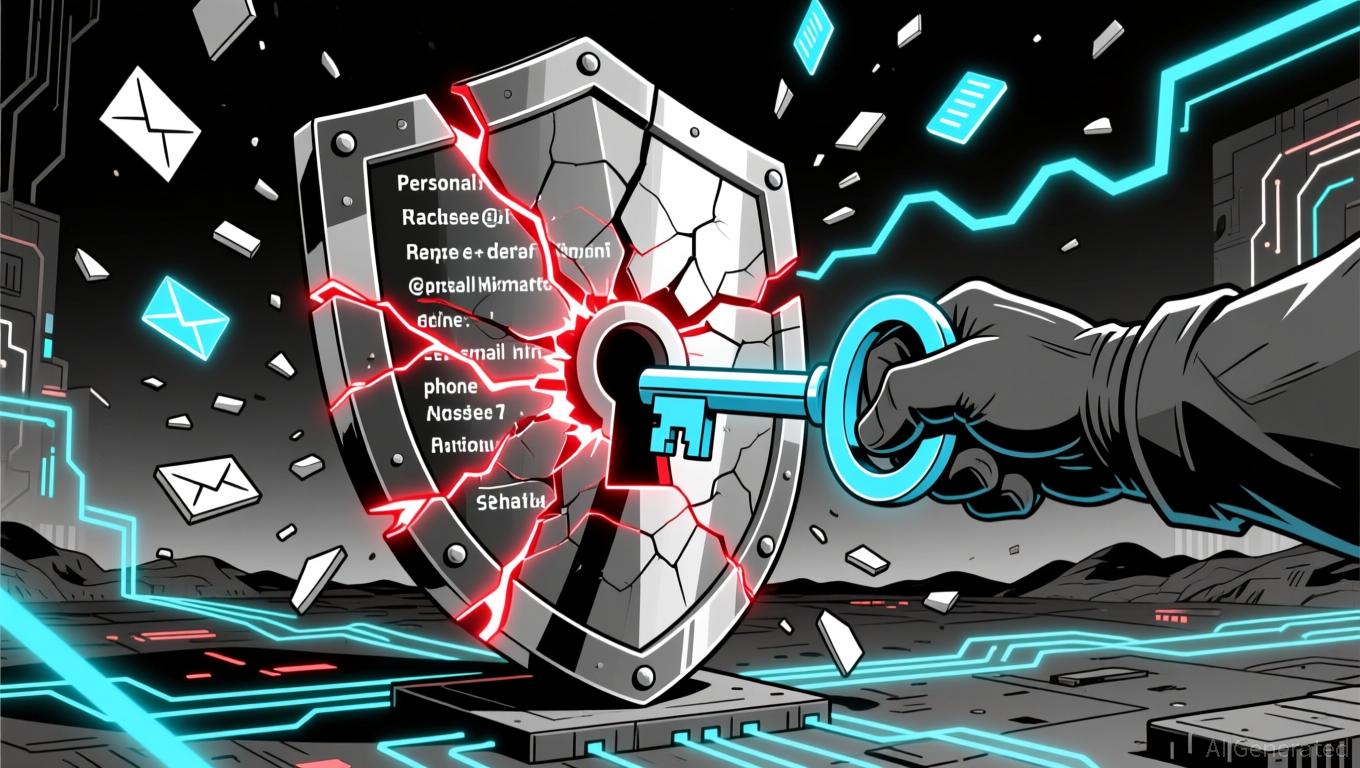DASH rises 20.83% over the past week despite earnings results and consequences of data breach
- DoorDash's stock rose 20.83% in 7 days despite a 6.58% 24-hour drop, driven by strategic partnerships and retail expansion. - Collaborations with RBC and Old Navy expanded DashPass access and apparel delivery, reinforcing its omnichannel growth strategy. - A cybersecurity breach exposed user data via social engineering, prompting enhanced security measures and external investigations. - A $18M Chicago settlement over deceptive practices highlighted ongoing legal challenges amid mixed stock performance an
As of November 18, 2025, DoorDash (DASH) was priced at $76.23, reflecting a 6.58% decrease over the previous day. Despite this short-term dip, the stock has surged by 20.83% in the last week, climbed 45.39% over the past month, and soared 102.88% compared to a year ago. These gains have unfolded amid a series of business moves and security events that have influenced both investor confidence and the company’s operational priorities in recent weeks.
Strategic Partnerships and Customer Benefits
DoorDash has been actively building its network of business alliances, most recently by extending its partnership with the Royal Bank of Canada (RBC). Now, RBC credit cardholders and Avion Rewards members are eligible for complimentary DashPass subscriptions, which provide free delivery and lower service fees on qualifying purchases. This initiative boosts customer value and supports DoorDash’s strategy to integrate across multiple channels.
This collaboration highlights DoorDash’s commitment to increasing user loyalty and convenience, especially during the busy holiday shopping period. In line with its broader retail ambitions,
Cybersecurity Challenges and Reassurance
Alongside these strategic moves, DoorDash recently encountered a cybersecurity issue that has attracted public scrutiny. On October 25, the company revealed a data breach caused by a social engineering attack on an employee. The breach exposed user details such as names, email addresses, phone numbers, and mailing addresses. DoorDash clarified that sensitive data like payment details, government identification, and Social Security numbers were not affected.

Regulatory and Legal Developments
Separately, DoorDash has agreed to pay $18 million to settle a lawsuit with the City of Chicago over claims of misleading business practices. The case, initiated in 2021, centered on hidden charges, unclear tipping policies, and unauthorized restaurant listings. As part of the settlement, $4 million in credits will be distributed to eligible Chicago customers starting January 28, 2026. DoorDash has stated that the settlement does not constitute an admission of fault and that the practices in question have since been discontinued.
These legal matters have unfolded amid notable stock fluctuations. Although DoorDash shares have risen 23.8% since the start of the year, they have fallen 21% this month and 16% over the last quarter, mirroring the uncertainty following recent news and developments.
Investor and Analyst Outlook
Market analysts are closely tracking DoorDash’s stock as the company navigates these various challenges. Recent earnings reports from DoorDash and other companies have drawn investor attention to financial results and strategic planning. The Federal Reserve’s upcoming interest rate announcement on December 10 is also anticipated to impact market sentiment, especially in light of broader economic trends.
As DoorDash continues to bolster its security and expand its partnerships in retail and finance, investors are watching carefully to see how the company manages growth while maintaining operational strength in a fast-changing market environment.
Disclaimer: The content of this article solely reflects the author's opinion and does not represent the platform in any capacity. This article is not intended to serve as a reference for making investment decisions.
You may also like
Bitcoin News Today: Institutional Exhaustion and Broader Economic Concerns Push Bitcoin Down to Lowest Point in 7 Months
- Bitcoin fell to a 7-month low below $95,000 amid profit-taking, institutional outflows, and macroeconomic uncertainty, mirroring a 5.8% drop in the CoinDesk 20 index. - Market fear intensified as the Fear & Greed Index hit 10 (lowest since Feb 2025), while MicroStrategy's rumored Bitcoin sales sparked panic despite CEO Saylor's denial. - Institutional fatigue and liquidity declines ($766M→$535.2M) raised correction risks, though Harvard's $443M IBIT investment signaled growing crypto acceptance amid vola
Bitcoin Updates Today: Bitcoin's $80,000 Support Falters as Regulatory Changes and Increased Selling Pressure Emerge
- Bitcoin drops to $89,900, with weak $89,600–$79,500 support raising fears of a breakdown below $90,300 amid heavy selling pressure. - Binance short positions dominate 6.4:1 ratio, while exchange reserves surge $1.43B, signaling panic exit preparations and reduced buyer leverage. - Japan reclassifies 105 cryptos as financial products, and Brazil considers stablecoin tax, adding regulatory uncertainty to crypto markets. - Institutional activity diverges: BitMine expands ETH holdings, while Mt. Gox’s $953M
Vitalik Buterin Backs ZKsync: Driving Ethereum's Layer 2 Transformation and Boosting Altcoin Growth
- Vitalik Buterin endorses ZKsync's Atlas upgrade, signaling a strategic shift in Ethereum's Layer 2 scaling. - The upgrade enables 15,000 TPS, near-zero fees, and boosts ZK token price by 50% post-announcement. - Institutional partnerships with Deutsche Bank and Citi highlight ZKsync's privacy-driven appeal in financial services . - ZK ecosystem grows with $3.5B TVL, driven by ZK rollups and hybrid TradFi-DeFi systems projected to reach $90B by 2031. - Regulatory risks and gas volatility persist, but ZK t
ZK Atlas Enhancement: Driving Ethereum’s Growth in Scalability and Energy Conservation
- ZK Atlas Upgrade (Oct 2025) tackles Ethereum's scalability and energy efficiency via Airbender prover, sequencer, and ZKsync OS, redefining Layer 2 performance. - Achieves 15,000 TPS with $0.0001 fees, boosting ZK rollups' TVL to $3.5B and enabling real-world asset tokenization through Prividiums architecture. - GKR protocol reduces ZK verification costs by 10-15x, slashing Ethereum gas fees by 90% and accelerating institutional adoption of energy-efficient blockchain solutions. - Upcoming Fusaka upgrade